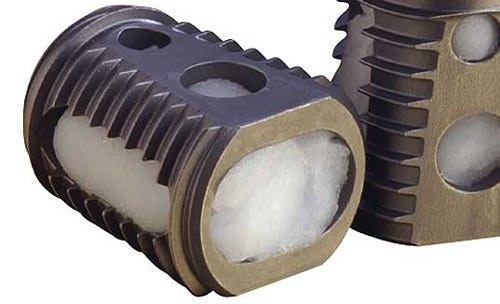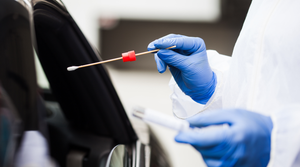How Medtronic Misplaced 1000 Negative Infuse Reports
April 11, 2016
At the time Medtronic supposedly lost the study results, there were only a few hundred Infuse-related problems in FDA's public database, according to Minneapolis' major daily newspaper. Adverse event reports now number in the thousands.
Nancy Crotti
|
Medtronic eventually reported the Infuse adverse events to FDA--but it was five years after the study ended. |
Medtronic failed to report to FDA more than 1000 adverse events related to its controversial Infuse bone graft device between 2006 and 2008, according to a report in the Star Tribune of Minneapolis.
Infuse Adverse Event Reports Received by FDA
Analysis FDA MAUDE data courtesy of independent analyst Steven Gill. |
Company employees discovered the adverse events--including four deaths--in a retrospective chart review of Infuse, but shut down the study in spring 2008 without reporting them to FDA, the Star Tribune said. Most of those employees have since left the company, leaving current officials befuddled by the failure to report.
At the time the study was shut down, FDA's public database only listed a few hundred problems related to Infuse, according to the newspaper. Years later, the number has expanded into thousands, and yet the Star Tribune reports that neither Medtronic nor FDA has publicly disclosed the full details of the shuttered study.
Medtronic eventually reported the adverse events to FDA--five years after the study ended--saying that the database that included the events had been "misfiled internally," the newspaper report said. The company told the Star Tribune that no patients had been harmed by the delay in reporting and that it had since improved its procedures.
The apparent archiving mix-up meant that the retrospective study results were not included in thousands of documents turned over in response to a 2008 subpoena from the U.S. Attorney's Office in Massachusetts, as well as a information request from the U.S. Senate Finance Committee in 2011, according to the Star Tribune.
Infuse is Medtronic's tradename for its recombinant bone morphogenic protein-2 (rhBMP-2) product, a genetically engineered version of a naturally occurring protein that stimulates bone growth and gives surgeons some control over where that growth occurs. FDA gave limited approval for its use in 2002 as an alternative to conventional spinal fusion to treat degenerative disc disease and open fractures on the tibia, and for some oral and dental procedures, but off-label use of the device became commonplace, with MedPageToday at one point estimatingthat as much as 80% of Medtronic's Infuse product had been used for off-label applications. (FDA approved using Infuse with two additional indications in December 2015.)
Medtronic has been mired with lawsuits and Senate probes over Infuse, whose use has been hotly debated among the medical and legal communities.
The new in-depth investigative report out of the Star Tribune has Medtronic accusing the newspaper of making false insinuations and failing to report important information regarding the chart review and the company's actions. "The reported adverse events do not change the safety and efficacy profile of Infuse," the company said in a statement. "We have fully lived up to our principles of transparency and disclosure.
The information from the chart review "had not been assessed for reportability during the 2006-2008 period," Medtronic continued. "Since the company did not complete an analysis of adverse events in the accumulated records, there is no basis for the paper's implication that Medtronic intentionally failed to report information in 2008."
After Medtronic discovered the chart review in 2013, regulatory and clinical safety staff concluded that the adverse event data identified in the review "were consistent with those already known across a wide body of literature and clinical study," the company said. "This conclusion was validated by an independent physician."
Medtronic said it submitted the adverse event data to FDA more than two years ago via a summary report that detailed 1039 events. The agency did not require individual adverse event reports, it added. "This level of detail allowed the FDA to conclude that the adverse events in the (review) were consistent with the known history of Infuse," the company said.
Physicians who had reported the deaths to the company concluded that Infuse did not cause them, the newspaper acknowledged.
"Because this information was dated, and didn't reflect new public health concerns, FDA determined there was not a public health benefit to filing these reports individually," an agency spokesman wrote in an e-mail to the newspaper.
FDA did not challenge Medtronic about the late reporting and blacked out the total number of events from the three-sentence summary that the agency made public, calling it a "corporate trade secret," the newspaper reported. FDA revealed the number of events a few months ago, after the newspaper challenged its decision to keep it secret. A spokesman then said keeping the information confidential had been a mistake, the newspaper report said.
FDA routinely makes available 10 years' worth of adverse events reports about a particular device. From 2006 to the present, the agency listed 3,672 under a search for the product name "Infuse." The lowest numbers of events, 66 and 86, were associated with the years 2007 and 2008 respectively.
Learn more about cutting-edge medical devices at BIOMEDevice Boston, April 13-14, 2016. |
Nancy Crotti is a contributor to Qmed and MPMN.
Like what you're reading? Subscribe to our daily e-newsletter.
About the Author(s)
You May Also Like



